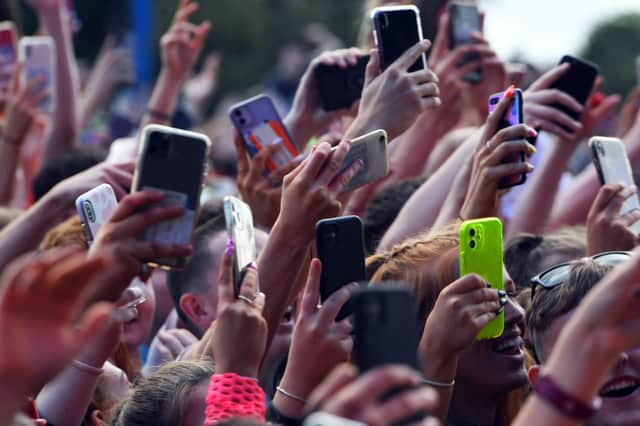Dirty Data: What is it and how is it contributing to climate change?


A report from the Institute of Engineering and Technology (IET) has revealed that people in Newcastle join millions across Britain in having a hidden ‘dirty data’ habit.
According to the IET, the report shows that the nation’s “trigger-happy social snappers” are contributing over 355,000 tonnes of CO2 every year through unwanted pics alone: the equivalent to the entire population of Chelmsford flying to Australia and back.
Advertisement
Hide AdAdvertisement
Hide AdWith the average person taking almost 900 photos per year the duplicated, unwanted images left in storage alone could accumulate 10.6kg of CO2 emissions annually for every adult in the UK – the equivalent of over 112,500 return flights from London to Perth, Australia.
But it’s not just our social media habits that are damaging the planet. With nearly 80% of us failing to consider the environmental impact of our data use online, ‘dirty data’ habits could be silently contributing as much to global emissions as international air travel.
Reports suggest the carbon footprint of our gadgets, the internet and the essential systems supporting them account for 3.7% of global greenhouse emissions – on par with the airline industry. And, shockingly, these emissions are predicted to double by 2025.
What is ‘Dirty Data?’
‘Dirty Data’ is the name given to data which pollutes a database. There are several types of ‘Dirty Data’, and in Britain we are guilty of the following bad habits according to the report
- Failing to delete duplicated pictures from our phones (69%)
- Using two or more devices at once (almost 60%)
- Passive streaming – focussing on another device when streaming TV/ video content (52%)
- Failing to clear archives from messaging services, for example WhatsApp or Facebook Messenger (63%)
- Holding onto old text messages (56%)
Advertisement
Hide AdAdvertisement
Hide AdChris Cartwright, Chair of the Digital Panel at the IET said: “We’re really pleased to see the public becoming increasingly engaged in environmental debates. We want people to feel empowered to get involved and play their own part in tackling climate change and contributing to the journey to net zero.
“Until now, a lot of the noise on carbon emissions has been focused on the big contributors – the aviation, transport, and food industries – or costly and disruptive solutions such as solar panels, micro-generation, storing energy using power walls and heat pumps. But the story doesn’t stop there.
“In our ever more connected lives, the data we now rely so much on also comes with a hidden carbon cost. Unsurprisingly, most of us don’t realise that our use of cloud storage means huge, power-hungry data centres are needed.
“The vast majority of data in the world today has been generated in the past two years; a trend showing no signs of slowing. This is why we all have a responsibility to change our habits.
Advertisement
Hide AdAdvertisement
Hide Ad“Deleting unwanted emails and photos, limiting use of the ‘reply all’ function, turning off auto-play on podcasts, Netflix or Amazon Prime and even having a ‘video off’ zoom day – these are all small changes people can easily make to lead a more sustainable online lifestyle.”
Comment Guidelines
National World encourages reader discussion on our stories. User feedback, insights and back-and-forth exchanges add a rich layer of context to reporting. Please review our Community Guidelines before commenting.